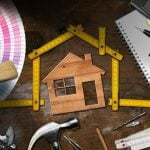When do I charge sales tax for home improvements? Understanding the basics of sales tax and its application to home improvements is essential for contractors and homeowners alike. Sales tax is a consumption tax imposed on the sale of goods and services, including home improvement projects. This article will provide a comprehensive guide to navigating the legal requirements and regulations for charging sales tax on home improvement projects.
Sales tax laws for home improvements can vary significantly by state and locality, making it crucial to understand the specific legal requirements and regulations that apply to your area. Differentiating between materials and labor is also essential as it determines which aspects of a project are subject to sales tax. Additionally, exemptions and exceptions may apply, leading to instances when you may not need to charge sales tax for certain home improvement transactions.
Staying informed about state-specific sales tax laws is critical, as they can change over time. Being aware of these changes ensures that you comply with current regulations and avoid potential legal risks and penalties associated with failing to charge sales tax when required. By following best practices for charging and documenting sales tax transactions, both contractors and homeowners can navigate the complexities of sales tax for home improvements successfully.
When Do I Charge Sales Tax for Home Improvements
When it comes to home improvements, understanding when to charge sales tax is crucial for contractors and homeowners alike. The legal requirements and regulations surrounding sales tax for home improvements can be complex, but it’s important to have a clear understanding in order to avoid potential legal issues. Here are some key points to consider:
- Contractors are generally required to charge sales tax on the materials used in home improvement projects. This includes items such as lumber, paint, hardware, and other construction materials.
- Labor costs for home improvements are typically not subject to sales tax. However, it’s important to keep detailed records and invoices separating labor and material costs to ensure compliance with state regulations.
- Some states have specific thresholds for when sales tax must be charged for home improvements. For example, in certain states, if the total cost of the project exceeds a certain amount, then sales tax must be collected.
It’s worth noting that exemptions and exceptions may apply in some cases. For example, if the home improvement project is being performed for a tax-exempt organization or government agency, then sales tax may not need to be charged. Additionally, some states provide exemptions for certain types of property improvements such as energy-efficient upgrades or renovations for individuals with disabilities.
Ultimately, navigating the legal requirements and regulations for charging sales tax on home improvements can vary by state and even local jurisdictions. It’s important for contractors and homeowners alike to familiarize themselves with the specific laws in their area and stay informed about any changes that may occur. Failure to properly charge sales tax can result in legal risks and penalties, so staying compliant is essential.
Differentiating Between Materials and Labor
When it comes to home improvements, it’s important for contractors and homeowners to understand the difference between materials and labor when it comes to sales tax. In most states, the general rule of thumb is that materials used in a home improvement project are subject to sales tax, while the labor involved is often not taxable. However, there are some exceptions and special cases that contractors and homeowners should be aware of.
Materials Subject to Sales Tax
In most cases, any tangible personal property used in a home improvement project will be subject to sales tax. This can include items such as lumber, paint, fixtures, appliances, and any other physical items that become a permanent part of the property. It’s important for contractors to keep thorough records of all materials purchased for a project in order to properly calculate and collect sales tax from their clients.
Labor Not Subject to Sales Tax
The labor involved in a home improvement project is typically not subject to sales tax. This includes the actual work performed by the contractor or their employees, as well as any subcontractors hired to complete specific tasks. However, it’s important for contractors to clearly differentiate between charges for materials and charges for labor on their invoices in order to avoid any potential confusion or disputes with their clients.
It’s also worth noting that some states may have specific regulations regarding what types of labor are exempt from sales tax. For example, certain maintenance or repair services may be exempt from sales tax in some states. Contractors should familiarize themselves with the specific laws in their state to ensure compliance with sales tax regulations.
Exemptions and Exceptions
Understanding sales tax exemptions and exceptions is crucial for home improvement contractors to ensure compliance with regulations and avoid unnecessary expenses. In many states, there are specific circumstances where sales tax does not need to be charged for home improvements.
One common exemption is when the customer purchasing the home improvement project qualifies for a sales tax exemption certificate. This includes instances where the customer is a non-profit organization, government entity, or other qualifying institution. It is essential for contractors to verify the eligibility of these entities and obtain the necessary documentation to support the exemption.
Another exception to charging sales tax for home improvements is when the project qualifies as a capital improvement. Capital improvements generally refer to alterations made to real property that add value or prolong its useful life, such as adding a new room or renovating a kitchen. In many states, capital improvements are exempt from sales tax, while repairs and maintenance may still be subject to taxation.
Moreover, some states have specific exemptions for certain types of materials used in home improvements. For example, energy-efficient products or materials used to make a residence more accessible for individuals with disabilities may qualify for sales tax exemptions in some jurisdictions. It is important for contractors to stay informed about these exemptions and exceptions applicable in their state to ensure accurate sales tax collection on their projects.
| Exemptions and Exceptions | When Do I Not Need to Charge Sales Tax for Home Improvements? |
|---|---|
| Sales Tax Exemption Certificate | Non-profit organizations, government entities |
| Capital Improvement | Qualifying alterations that add value or extend useful life |
| Special Materials Exemptions | Energy-efficient products, accessibility modifications |
Navigating State-Specific Sales Tax Laws
When it comes to charging sales tax for home improvements, it is crucial to understand the state-specific laws and regulations that apply. Each state has its own set of rules regarding sales tax, and home improvement contractors must navigate these laws carefully to avoid any legal issues. Here is a comprehensive guide on how to navigate state-specific sales tax laws:
- Research State Laws: Before beginning any home improvement project, it is essential for contractors to research and familiarize themselves with the sales tax laws specific to the state in which the project will take place. This includes understanding the applicable tax rates, exemptions, and any recent changes in the law.
- Consult with Tax Professionals: For complex projects or when in doubt, it is advisable for contractors to seek guidance from tax professionals who specialize in state sales tax laws. These professionals can provide valuable insights and ensure compliance with all legal requirements.
- Stay Updated on Changes: Sales tax laws are subject to change, so it is important for home improvement contractors to stay informed about any updates or modifications in the state-specific regulations. This can be done through official government websites, newsletters, or industry publications.
Navigating state-specific sales tax laws can be complex, but by thoroughly understanding the regulations, consulting with experts when needed, and staying updated on any changes, home improvement contractors can ensure compliance and avoid potential legal risks related to sales tax. Each state may have unique requirements, making it essential for contractors to be well-versed in the specific laws of the states where they conduct business.
Keeping Up With Changes
Staying informed about changes in sales tax regulations is crucial for home improvement contractors. As laws and regulations evolve, it’s essential to stay up-to-date to ensure compliance and avoid potential legal issues. One way to stay informed is by regularly checking the official website of your state’s department of revenue or tax authority. These websites often provide resources, updates, and guidelines related to sales tax for home improvements.
Another useful way to keep up with changes in sales tax regulations is by joining industry associations or trade organizations. These groups often provide valuable information and updates on legislative changes that may affect how you charge sales tax for home improvement projects. Additionally, attending workshops, seminars, or webinars specifically focused on tax law updates can also be beneficial.
Reaching out to a professional accountant or tax advisor who specializes in home improvement contracting can provide valuable insights into any changes in sales tax regulations. These professionals are well-versed in the latest rules and requirements, and they can offer guidance on how to remain compliant while charging and documenting sales tax for your projects.
| Staying Informed Methods | Benefits |
|---|---|
| Checking State Department Websites | Access official resources and guidelines |
| Joining Industry Associations | Receive updates from professionals in the field |
| Consulting with Tax Advisor | Gaining insights from a professional specializing in home improvement contracting |
The Consequences of Failing to Charge Sales Tax
Failure to Comply With State Laws
Contractors who fail to charge sales tax on home improvement projects where it is required may face serious legal consequences. Each state has its own regulations regarding the collection of sales tax for home improvements, and failure to comply with these laws can result in fines, penalties, and even legal action. It’s crucial for contractors to thoroughly understand the specific requirements in their state to avoid legal risks.
Penalties and Fines
The penalties for failing to charge sales tax on eligible home improvement projects can be substantial. In some cases, contractors may be required to pay back taxes, interest, and additional penalties. Furthermore, failure to collect sales tax as required by law can result in the suspension or revocation of a contractor’s business license, making it essential for contractors to stay informed about their obligations.
Legal Action
In more severe cases, contractors who consistently fail to charge sales tax as mandated by state law may face legal action from government agencies. This could lead to costly litigation, damage to the contractor’s reputation, and potentially the closure of their business. It is imperative for home improvement contractors to prioritize compliance with sales tax regulations in order to avoid these significant legal risks and penalties.
Best Practices for Home Improvement Contractors
As a home improvement contractor, it is crucial to understand the best practices for properly charging and documenting sales tax transactions. The first tip is to familiarize yourself with the state-specific sales tax laws that apply to home improvements in the areas where you conduct business. Each state has its own regulations regarding sales tax for construction materials and labor, so staying informed about these laws is essential to avoid legal risks and penalties.
Another important best practice is to keep detailed records of all sales tax transactions related to home improvements. This includes invoices, receipts, and any other documentation that can serve as evidence of sales tax collection. Maintaining organized and accurate records will not only help you stay compliant with tax regulations but also make your accounting processes smoother and more efficient.
It’s also recommended for home improvement contractors to communicate clearly with their clients about sales tax charges. Make sure your customers understand when they are required to pay sales tax for materials and labor, as well as any exemptions or exceptions that may apply. Transparency in your communication can help build trust with your clients and avoid misunderstandings or disputes related to sales tax charges.
By following these best practices, home improvement contractors can ensure compliance with sales tax regulations, minimize legal risks, maintain transparent communication with clients, and streamline their accounting processes. Adhering to these tips will not only benefit your business but also contribute to a positive experience for both you and your customers during home improvement projects.
Case Studies and Examples
In conclusion, understanding the guidelines for charging sales tax for home improvements is crucial for home improvement contractors and homeowners alike. Navigating through the legal requirements and regulations can be complex, but it is essential to ensure compliance with state-specific sales tax laws. By differentiating between materials and labor, contractors can determine which aspects of their services are subject to sales tax, while also being aware of exemptions and exceptions that may apply in certain situations.
Staying informed about sales tax regulations for home improvements is an ongoing process, as these laws can change over time. It is important for contractors to keep up with these changes to avoid potential legal risks and penalties associated with failing to charge sales tax when required. By documenting all sales tax transactions properly and following best practices, contractors can minimize their exposure to legal consequences while maintaining compliance with the law.
Real-life case studies and examples provide valuable insights into the practical application of sales tax regulations for home improvements. By examining specific scenarios, contractors can gain a better understanding of when they need to charge sales tax and when exemptions may apply. Ultimately, by adhering to the legal requirements, staying informed about changes in sales tax laws, and implementing best practices, home improvement contractors can ensure that they are charging sales tax appropriately while avoiding potential legal issues.
Frequently Asked Questions
Is There Tax on Home Improvements in NY?
In New York, sales tax is generally not applied to home improvements as long as the work is considered a capital improvement. Capital improvements are those that substantially add value to the property or prolong its useful life.
However, if the home improvement project involves tangible personal property, such as furniture or appliances, those items may be subject to sales tax.
Should Sales Tax Be Applied to Labor?
The application of sales tax to labor for home improvements is a complex issue that varies by state and project type. In general, when a home improvement project involves both materials and labor, some states may require sales tax to be applied to both components.
However, there are often exemptions and special rules depending on the nature of the work being performed.
Is There Sales Tax on Home Improvements in PA?
In Pennsylvania, sales tax is generally not imposed on residential construction services for home improvements. This includes labor costs related to construction projects such as renovations or remodeling.
However, it’s important to note that there may be exceptions or specific circumstances where certain aspects of the project could be subject to sales tax under Pennsylvania law. It’s always best to consult with a tax professional or the Pennsylvania Department of Revenue for specific guidance in this area.

I’m thrilled to have you here as a part of the Remodeling Top community. This is where my journey as an architect and remodeling enthusiast intersects with your passion for transforming houses into dream homes.





